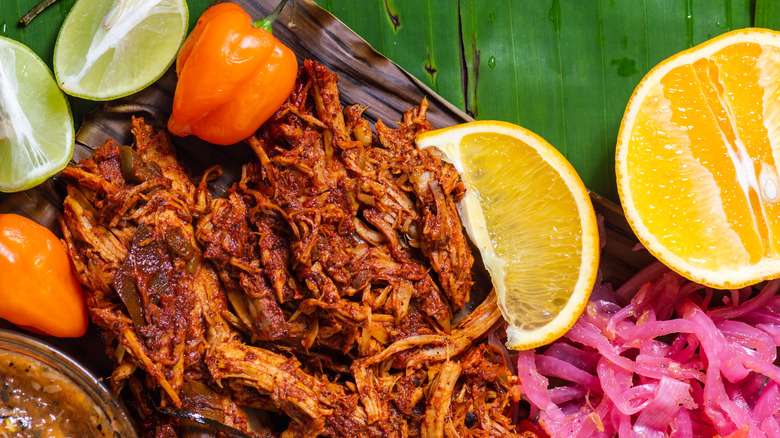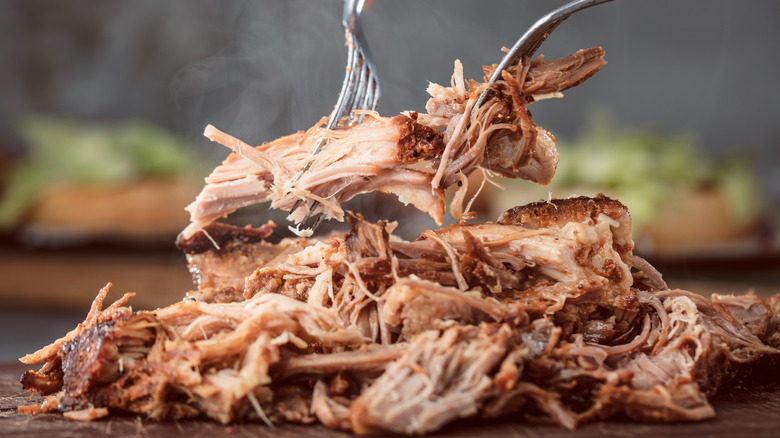Orange Juice Is The Secret Key To Tender And Balanced Pork
Pork comes in a variety of delicious forms — from bacon and chops to tenderloin. However, there's something about pulled pork that really delivers. A whole variety of flavors can be imbued during slow cooking, and when prepared properly, the result is very tasty melt-in-your-mouth meat. As an added bonus, pulled pork reheats well, making it a terrific choice to cook in large batches.
Versions of the slow-cooked favorite can take on a distinctly American BBQ style, or be filled with Chinese spice — like you would taste in the filling of a bao. However, to really ensure a tender result, add orange juice to the mix. A popular technique in Mexican-style carnitas, Peruvian recipes, and Cuban-style pork shoulder, there's a reason that the addition of orange juice is widespread in Latin American culinary creations. But what exactly does it do — and what kind of flavor does it impart? Let's dive into the tasty effects of when pork meets citrus.
Orange juice both tenderizes and crisps up slow-cooked pork
When preparing slow-cooked pork with orange juice, the citrus liquid goes into the crockpot or is poured over the meat as a marinade. Most recipes suggest a generous proportion, as much as a whole orange per two pounds of pork. In Cuba and Mexico, especially in the Yucatán's famed cochinita pibil rendition, sour oranges are the go-to fruit choice. Their more acidic composition enables more tenderizing and inflects a unique flavor. However, since the variety is difficult to find, a blend of a more readily found navel or Valencia orange with lime juice is a common substitution.
In addition to tenderizing the pork, the added orange juice also serves another purpose — caramelization. The fruit's sugars inspire the Maillard reaction, creating a crisped, delicious crust on the outside of the meat. When combined with the resulting sauce's tangy, slightly fruity flavor, the pork takes on a delectable mix of flavor with both super soft and crisp textures. So make sure to squeeze a couple of fruits into your next batch of slow-cooked pork; it'll transform the result.

